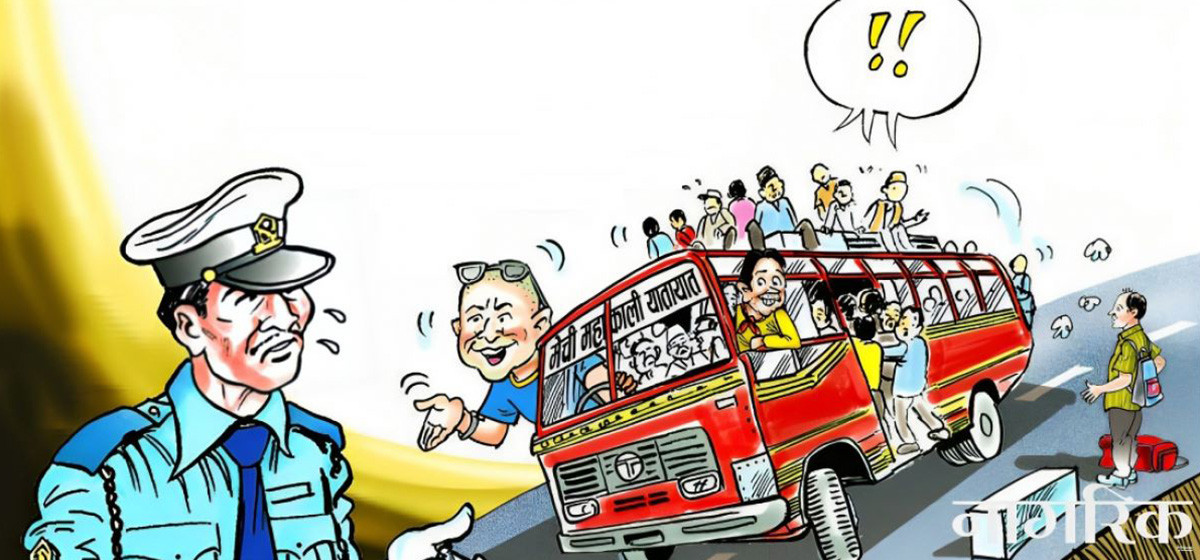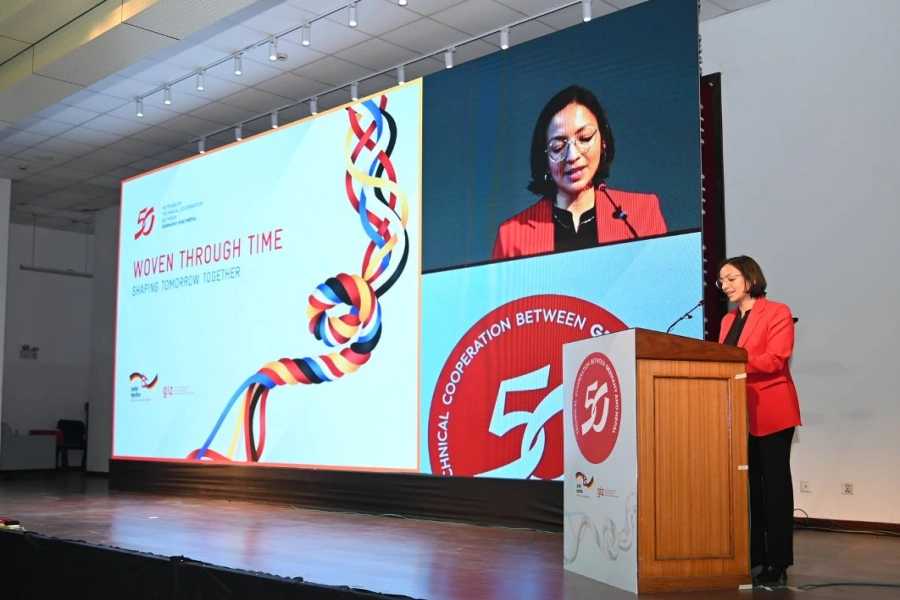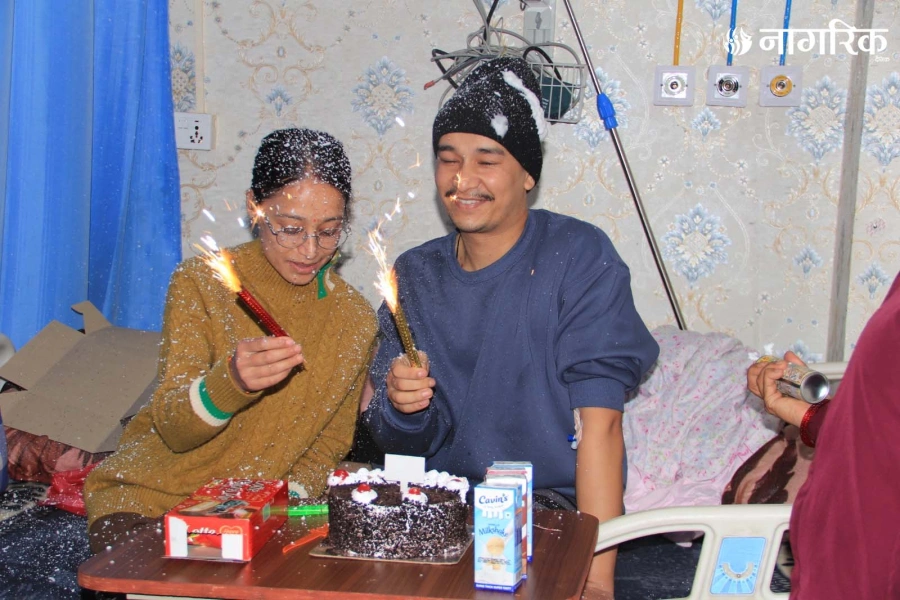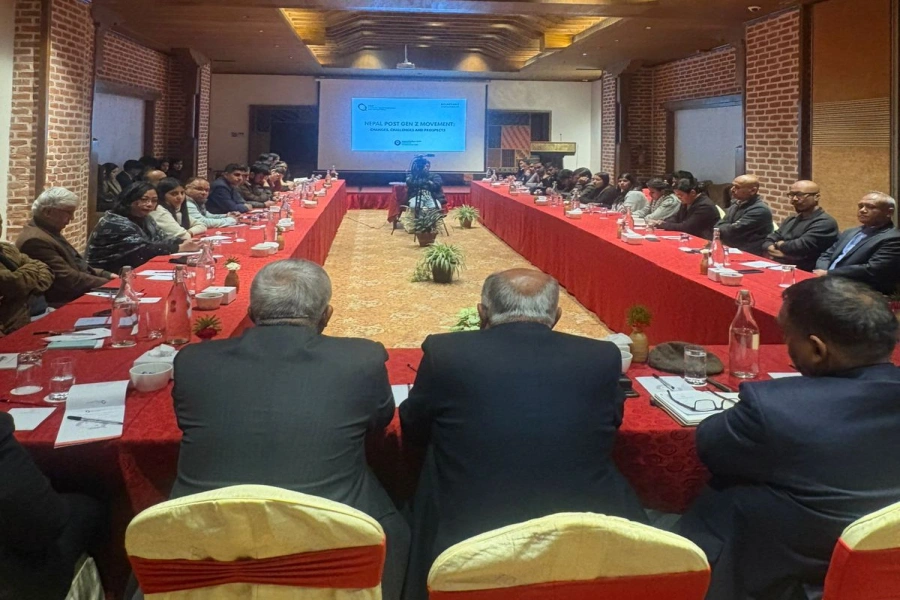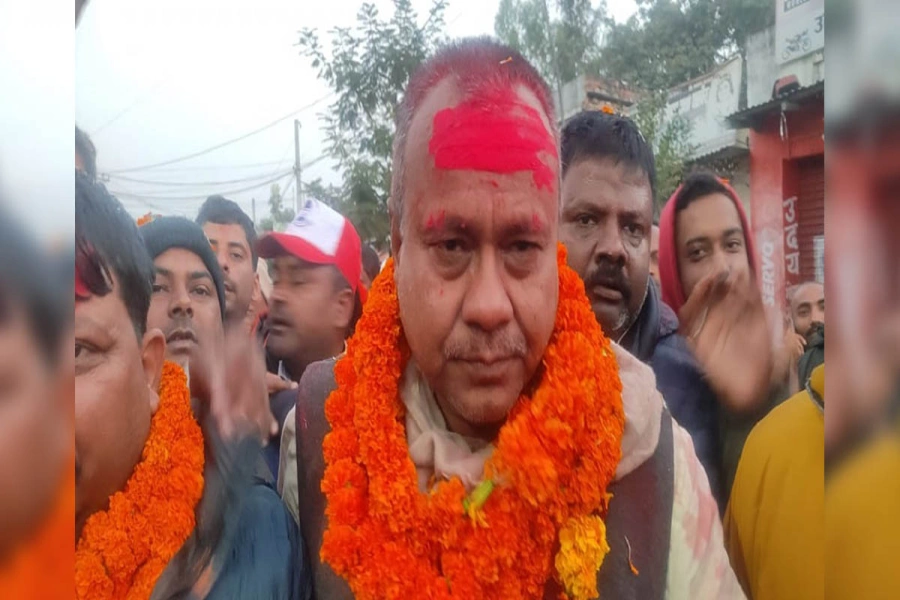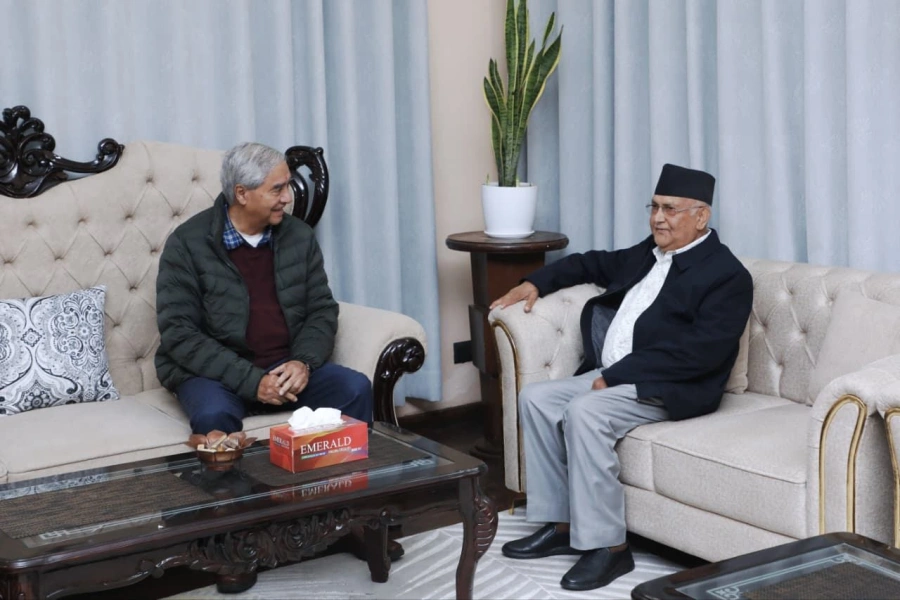KATHMANDU, June 6: The government is preparing to draft and enforce stricter laws related to road safety in order to reduce road accidents. The cabinet has decided, in principle, to approve the draft bill on road safety for the enactment of new law.
According to Krishna Raj Panta, Secretary at the Ministry of Physical Infrastructure and Transport (MoPIT), the cabinet has agreed to advance the draft bill with the main objective of reducing road accidents to zero. He added that the draft bill will be sent to the Ministry of Finance (MoF) within a day or two for approval and once the Finance Ministry agrees, it will be forwarded to the Ministry of Law, Justice and Parliamentary Affairs.
“We have committed on various international platforms to reduce road accidents by half by 2030 compared to current levels and to bring them down to zero by 2050. We are preparing the Road Safety Act to fulfill this commitment,” he said.
Currently, about eight people die daily in road accidents. The government aims to reduce this number to four by 2030 and to zero by 2050.
For the upcoming Fiscal Year (FY) 2025/26, the government has committed in its policy and program to introduce a Road Safety Act aimed at reducing accidents. In line with this commitment, preparations are underway to draft the Road Safety Act. The draft was actually prepared seven years ago but could not progress due to various reasons.
Road safety draft gathering dust at the Ministry of Transport f...
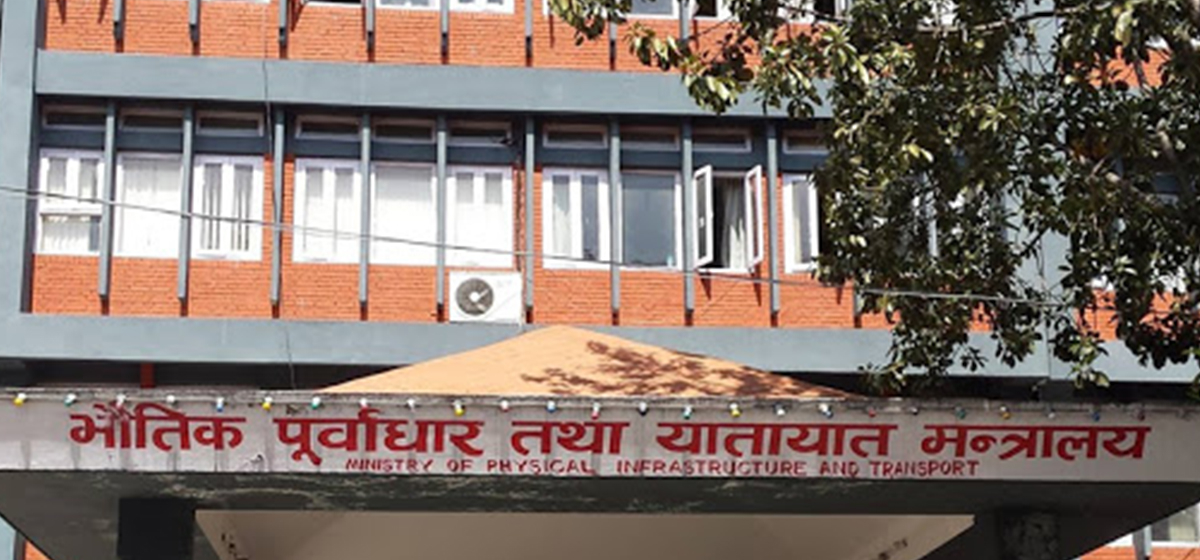
The government has also pledged, through its policy and program, to improve road conditions to reduce vehicle accidents.
To address how to reduce road accidents and how to quickly rescue the injured after an accident, the ministry has prepared a draft of the Road Safety Act and the National Road Safety Action Plan.
According to an official from the MoPIT, the initial draft of the Road Safety Act and the action plan were prepared back in 2075 BS. Although the Department of Roads has established a Road Safety and Traffic Branch, the action plan has not yet been approved, so it has not been implemented effectively.
A physical infrastructure ministry official stated that the draft of the Road Safety Act has been delayed for seven years primarily because the MoF was slow to give approval. According to the official, the delay was also caused because the MoF wanted to integrate both laws into a single act.
The MoPIT had submitted separate drafts for the Road Safety Act and the Public Road Safety Act to the MoF for approval. However, the MoF instructed them to prepare a unified draft. Later, after ministry officials explained the situation, the Finance Ministry gave its principled agreement to draft the two acts separately.
According to MoPIT officials, the Road Safety Act focuses on the safety of roads, while the Public Road Act is related to road construction laws. Currently, there is no separate law specifically for road safety, so actions related to reducing road accidents have been carried out based on the Traffic Management Act and its regulations.
Due to the absence of a dedicated Road Safety Act, matters such as honking, controlling vehicle speed, and following traffic rules have been enforced under the Traffic Management regulations.
The draft proposes the formation of an empowered National Road Safety Council (NRSC) chaired by the Minister of Physical Infrastructure. According to Panta, “There is currently a NRSC chaired by the Secretary of the Ministry of Physical Infrastructure, but due to the lack of a law, this NRSC has not been effective, autonomous, or powerful,” He added, “Once the Road Safety Act is enacted, the NRSC will not only become autonomous and powerful but will also become a separate wing of the government.”
According to the ministry, in the absence of a dedicated law, the existing NRSC was formed through an order rather than by law. Therefore, the council is almost inactive.
The draft includes a provision to rescue the injured as quickly as possible whenever a road accident occurs anywhere in the country. For this purpose, a team consisting of health workers, security personnel, the Department of Roads, and the Department of Transport Management will be on standby 24 hours a day. This team will coordinate with security personnel, health workers, employees, and other relevant agencies and individuals.
The draft also proposes that the NRSC formed at the central level include representatives from the Ministry of Urban Development and the Ministry of Home Affairs, as well as one representative each from the Traffic Police, Nepal Police, Department of Health Services, Department of Roads, and Department of Transport Management.
The NRSC’s role is defined as assisting in reducing road accidents, formulating policies and regulations for the prompt rescue of the injured in case of accidents, monitoring, coordinating, and implementing policies and programs.
The draft includes provisions related to road safety education, identification of black spots, engineering improvements for road safety, vehicle inspections, enforcement of traffic rules, training for drivers, and quick rescue after accidents. It also addresses how to make post-accident rescue efforts more effective, swift, and efficient.
A senior official from the MoPIT stated that the fact that the National Road Safety Act has not yet been enacted is unfortunate for the country. “In other countries, laws and action plans related to road safety are given utmost importance. For example, the Supreme Court of India has directed the government there to form a separate Road Safety Committee,” the official said, “However, in our country, a separate law on road safety has not yet been passed. This is a regrettable situation.”


